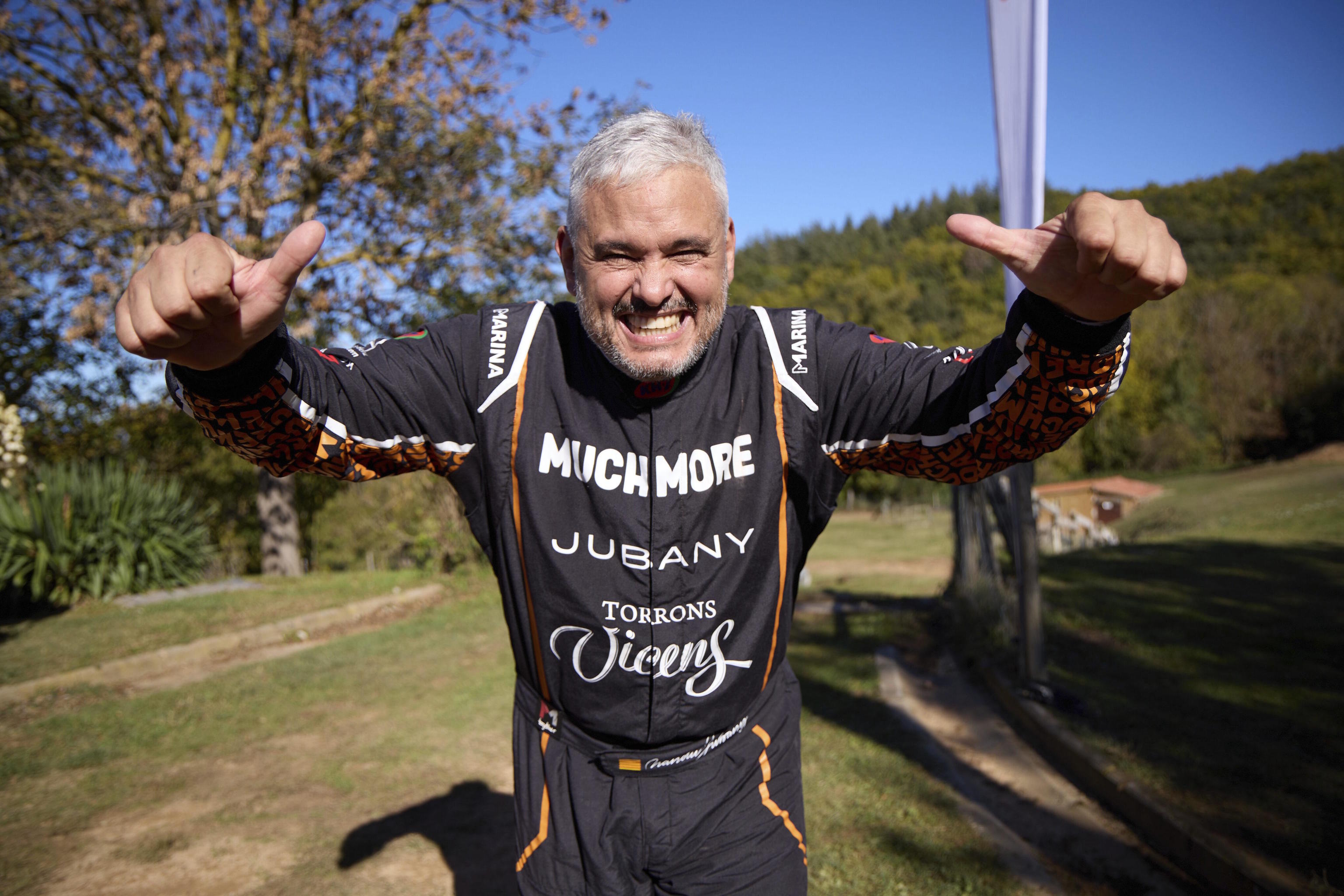They say he would trade the success in his restaurants for a victory in the Dakar.
I don't know about that, but my childhood dream was to be a pilot, not a chef. I was the BMX champion of Spain, wanted to switch to motorcycles, and ended up injuring my knee in a fall when I was 13. I became a chef due to that injury. Fortunately, over the years, I have been successful in my profession and can afford the luxury of participating in the Dakar. This year, I would like to win in my category, the Ultimate.
Can you cook something when you are in the desert?
Yes, of course. After each stage, no matter the time, I start cooking something, and Spanish pilots come over for a beer and a chat. I love that. I spend 20 days in the desert, a big part of my vacation, and then I go straight back to my restaurants, but it's worth it.
He received his first Michelin star in 1998. At that time, a chef couldn't afford such a luxury.
Absolutely. About 10 years ago, something incredible happened: chefs completely changed the public perception of the profession. When I started, it was a bad job, a job for lost people. A customer would come and say, "Nandu, please, talk to my daughter, she wants to be a chef, talk her out of it." Now it's the opposite: parents are proud if their children study cooking. We owe this to the great chefs we have had in the country.
Perhaps he is the Michelin chef who cares the least about Michelin.
Well, now I care a lot because I need tires (laughs). The Michelin star is a recognition we have had in the restaurant for 27 years, and it has served us well. Obviously, if we had two stars, even better. But for years, those awards have not kept me up at night. What worries me is that people eat well and that the business is viable. Without a business, there is no restaurant.
Speaking of business. In addition to opening 10 restaurants in Catalonia, the Balearic Islands, Andorra, or Singapore, he has created an empire in pre-cooked meals through supermarkets like Ametller, Bon Preu, or Marks & Spencer... What happened?
We used to organize banquets, and during the lockdown, we thought we wouldn't work for years, that 500 people would never gather again. And we were clever. With all the employees we had for those banquets, we started making croquettes, then cannelloni, and partnered with Ametller to reach many people. In four years, we have expanded the facilities several times and have achieved numbers we never imagined. This year we sell 14 million croquettes and seven or eight million cannelloni. The company is growing in the UK and the US, and I hope it will soon reach the rest of Spain, not just Catalonia.
There are many brands of pre-cooked meals. What's the trick?
I set the price. The success comes from first making the best recipe with the best products - the best butter, the best flour, the best chicken, the best beef, the best cheese - and then setting the price. They are not the cheapest croquettes, but they are the most delicious. And people buy them. We sell the croquettes we would make in the restaurant. If you want to lower the price a lot, you compromise on quality.
Also, there's that provocative touch: you made a paella and chorizo croquette, and everyone on social media criticized it.
We stirred things up there (laughs). But the croquette was good and it worked. In fact, thanks to the controversy, we continued making it for another year. It was a success. We don't make it anymore, but we keep experimenting. Recently, we made a chocolate croquette. You have to motivate people to keep buying our product. We are now working on a line of sauces and another of stir-fries for rice: you can buy them, sauté the rice, add water, and you're done.
Is there something you have tried to sell in supermarkets that didn't work out?
The macaroni with tomato. At Can Jubany, we make exquisite macaroni, we tried to launch a line, but it didn't meet the standard. After a few days in the fridge, the pasta wasn't as good, and I didn't want to market it.
It seems like the big profit for chefs lies in these side businesses.
There is a lot of business, but I wouldn't trade the restaurants for anything. The happiness you feel when you welcome people into your home is unique. A supermarket can't give you that. Although I put all my effort into my pre-cooked food. I think that is also part of the success. The factory is mine, I lead the R&D, and I know the product I sell perfectly. I don't just put my face on it and that's it.
The last one...
Question. What is the most impertinent question you have been asked? What was your response?
Answer. Sometimes, they doubt if I am prepared for the Dakar, as if I am going without knowing how to drive. I work a lot, but I sleep quickly to meet my training hours. When I go to my restaurants, to Baqueira or Andorra, I take the opportunity to practice.
